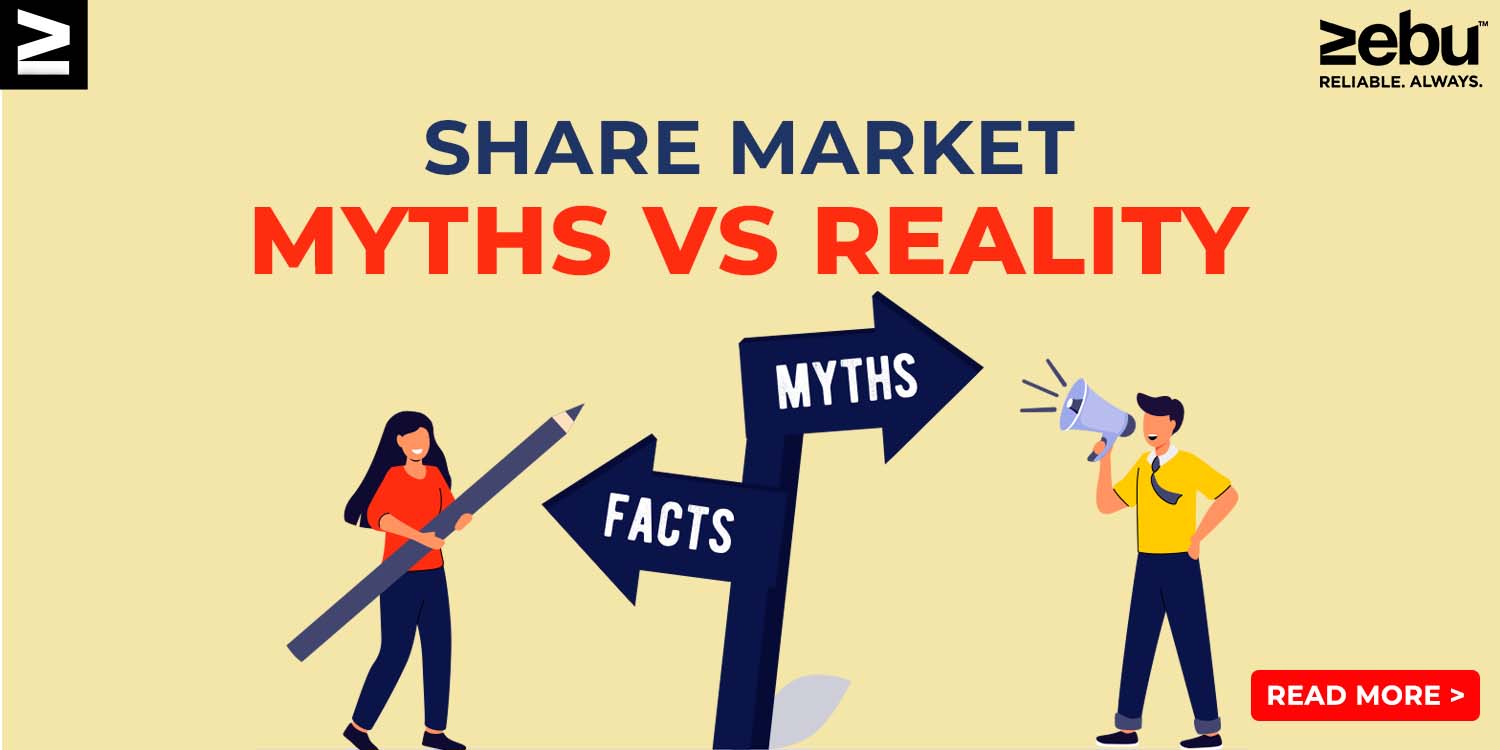
When someone enters the share market as an investor or trader, they will come in after listening to several myths about the share market. Here, we bust a few myths about trading and investing.
Myth 1: Buying stocks is the same as gambling.
People often think that trading is like betting, where you either win or lose.
Myth Shot Down
Investing is more like a science than an art because it requires thorough research into the technical and fundamental aspects of the assets, as well as the market’s current trends and the company’s growth potential.
Myth 2: Past results show what will happen in the future
When making an investment decision, investors look at how the stock has done in the past or how it has been rated.
Myth Shot Down
Investing decisions are made based on the company’s future, not just on what has happened in the past. Some of the most important macroeconomic factors that affect the performance of stocks are the interest rate, GDP, exchange rate, etc. Investors must also look at the company’s quarterly results, how much competition there is, how much it costs to make a product, if a new product is coming out, if there are changes in the top management, etc.
Myth 3: Stocks that go down will go back up, or vice versa.
Most people think that a stock that is going down will go up again at some point. In a similar way, they don’t buy stocks that are at all-time highs because they think the price will drop quickly.
Myth Shot Down
Investors should look into why a stock is going down. Is the collapse just because of the mood of the market, which could change, or is it because of something big that could hurt the company’s finances? Also, a stock’s recent rapid rise does not always mean that it can’t go up more.
Myth 4: To be successful, you have to spend a lot of money.
Myth Shot Down
In reality, all the investors need to do is be disciplined and do thorough research. The power of compounding can be unlocked by making small investments over a long period of time. This can turn regular investors into millionaires.
Myth 5: You have to trade a lot in order to be successful.
A second thing that keeps people from investing is the idea that they will have to trade a lot to make good money.
Myth Shot Down
In reality, quality trades do better than lots of trades. If you don’t do your research, you might make a lot of trades but not get the results you want. On the other hand, you may make good money if you invest wisely and make good trades.
Myth 6: Trading stocks with low P/E (Price-to-Earnings) ratios is smart and safe.
The price-to-earnings ratio (P/E) can be used to tell if a stock is overvalued or undervalued. Most people think that the better the deal, the lower the price is compared to the earnings (P/E ratio).
Myth Shot Down
There may be a good reason why the stock is so cheap. Considerations must be made for the company’s growth prospects, operating revenue, product launch (if any), debt structure, peer comparison, management, etc.

